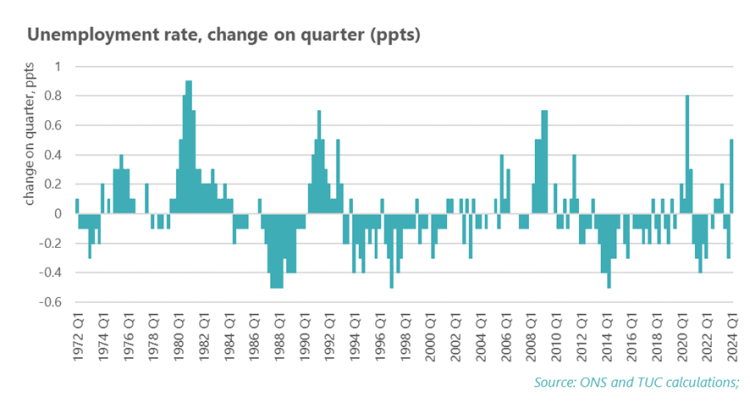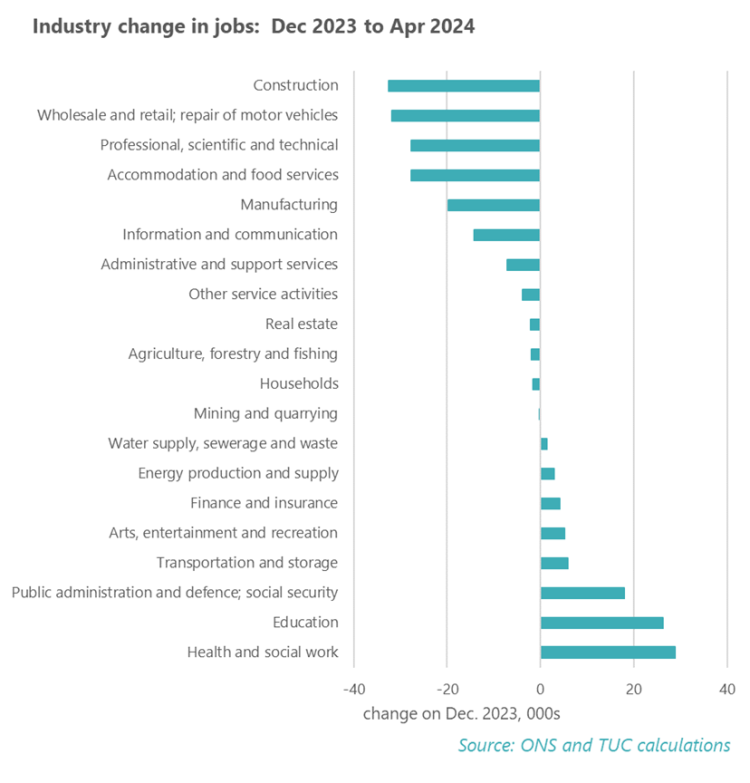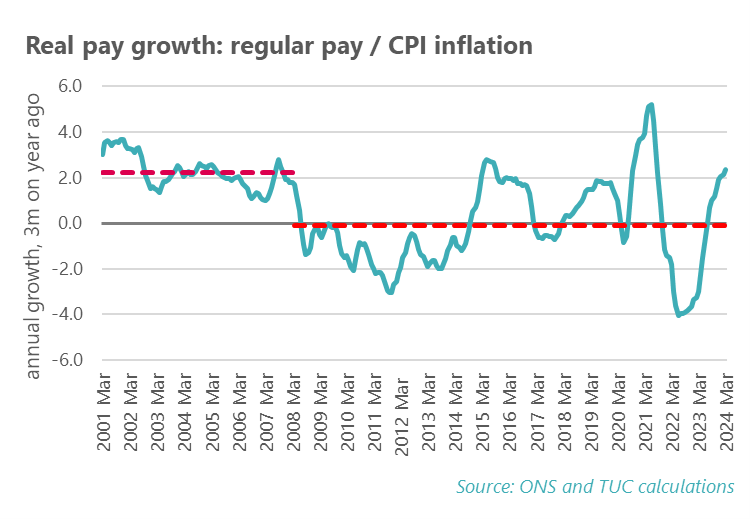Rapid deterioration in the Labour market
Last week’s celebrations of an economic revival are premature. Continuing to attack the victims of the deteriorating jobs performance is ill-judged and unhelpful to turning the situation round.
While there are uncertainties around some of the jobs data, and overall the level of unemployment is relatively low on recent experience – a quarterly increase of 0.5 percentage points is a recession-sized increase (matched only in the early 80s, early 90s, global financial crisis in 2008-09 and the pandemic).
In parallel employment fell by 203,000 on the quarter, and inactivity again rose by 104,000 on the quarter.
Jobs by industry
Other figures back up the broad picture, especially the so-called ‘real-time’ jobs data (that come from HM Revenue and Customs databases). While the figures for the most recent month are sometimes revised to look less bad, at face value jobs have fallen in each of the past three months and the past four months for the private sector (or rather industries dominated by the private sector). As the chart below shows, the biggest deteriorations are in construction, retail/wholesale, business services, accommodation and food and manufacturing, but the falls are partly offset by gains in health, education and public administration.
Some industries at both ends are matched by corresponding changes in GDP information. While 0.6 per cent was decent growth into 24Q1, beyond the headline figures:
- some industries show signs of stress: agriculture, construction, water and sewerage, energy supply and demand;
- some industries look flat: wholesale and retail (albeit erratic), ICT (after a hefty fall) and finance (likewise);
- strength in manufacturing, transport and storage, real estate, business services and arts and entertainment; and
- broadly strength in public services.
Output by industry, indices,
Inactivity
The government routinely seeks to target the parallel rise in inactivity as the cause of this rapid deterioration, and double down with increasingly punishing benefit sanctions. A separate commentary addresses the government’s frankly cruel approach to sick and disabled people. Instead the deterioration is likely a vicious cycle: consequence of the failed economic performance, and causal to the extent that failing health is undermining the ability of some to get back into work.
Inactivity due to long-term sickness remains at a record high at 2.82 million: up by 109,000 on the same quarter last year, and up by 818,000 on five years ago. The rise in economic inactivity due to long-term sickness has been steep for both men and women, but steeper among women. The number of women economically inactive due to long-term sickness has risen by 485,000 (46 per cent) over the past five years, compared to 333,000 (35 per cent) among men. Long-term sickness is now the most common reason for inactivity for both men and women, overtaking being a student for men and caring responsibilities for women.
In the specific terms of the labour market, with unemployment rising and jobs falling across the private sector (and also vacancies falling again to below 900,000) it is increasingly difficult to imaging there is a shortage of workers.
Real pay
With inflation slowing and hard-fought (nominal) pay gains holding up but moderating, real pay has been positive for some months. But to celebrate a momentary peak is to deny the underlying reality of failed real pay for sixteen years.
Average real pay growth ahead of the global financial crisis was 2.3 per cent a year, Average pay growth since the global financial crisis has been -0.1 per cent (both adjusting for inflation with CPI). Real pay hitting 2.4 per cent this month is meaningless in terms of the standard of life of working people.
Stagnant real pay has meant stagnant spending and a stagnant economy. Paul Nowak TUC General Secretary sums up:
“The Tories are presiding over a rapidly deteriorating jobs market.
“Unemployment and economic inactivity are shooting up. Over a million people are trapped on zero-hours contracts. And real wages are still worth less than in 2008.
“Forget ‘green shoots’ - everywhere you look the Tories are failing working people.
“Our country is crying out for a proper economic plan for jobs and growth to make sure household incomes can recover and everyone is secure at work.
“And our NHS desperately needs investment to get waiting lists back down. When people can access treatment faster, they will return to work sooner.”
Stay Updated
Want to hear about our latest news and blogs?
Sign up now to get it straight to your inbox




